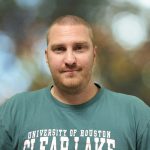
Imagine that you are 33 years old and you ask someone 20 years old how to do something on the computer. It’s easy, right? There’s no problem asking something like that because it is socially perceived as understandable and acceptable. Take that same scenario, but make the question something socially awkward and embarrassing, like asking how to invite a girl out on a date for example, and you would have me.
You may be thinking “what a loser; he does not know how to do something even a high school kid knows how to do,” and you would be right, but asking for help – even though it’s embarrassing – does not make me a loser. I was a loser because I could not and would not ask for help even though I needed it.
Everything I do in life today is new to me. At 33 years old, I have to lean on others to learn how to be an adult. I am learning how to live my life without alcohol; everything I did since I became an adult by society’s standards involved alcohol. What I like to do, what kind of friends I value or fit in with, what kinds of food I enjoy and who I am as a person are all things I should know by now, but I am just getting to experience.
I have been sober for just over three years now, and for three years I have been learning how to be an adult. Social situations that I should understand need to be pointed out to me. From simple situations, like what kind of jokes are appropriate, to complex ones like dealing with emotions in a healthy way. I had a false image of what a “man” is, and it was to never show weakness, never ask for help and basically be dominant. I can honestly say that I am sober today because I was finally able to ask for help – shelving my pride, ego and whatever sense I had of what a “man” is.
About five years ago, I was basically homeless and living by a river. I made sure the spot I stayed at was close to where people hung out so I could steal alcohol off of them and occasionally grab some food. I was close enough to town to get to a plasma and blood donation center so I could get my bi-weekly donation money. I did whatever I could to make sure I had alcohol because it was my only relief from the past that I destroyed, the present which was garbage and the future I did not have. I would seek oblivion using alcohol or anything else I could get my hands on that would erase my past, present and future.
People always ask me how bad my home life was or what tragic event happened to make me give up on life. Nothing happened. There was no Freudian reason why I drank. My home life was not broken. I was not abused. There was no tragic incident. I drank because I loved it, and did it as much and often as possible since the first time I drank at about 16 years old.
Once I started drinking the problems started to mount. The more I ignored the problems the harder life got to live; the harder life got to live the more difficult it became to ask for help. It became a vicious cycle of not really wanting to drink but needing to drink – partly because I was physically addicted and would go into Delirium Tremens (DTs) without it, and partly because it is what I have always done and did not know what else to do but drink. I had no resentments against anyone or anything in particular; the whole world was wrong.
I finally asked for help when the pain of living, if you could call what I had a life, was too great. It was either get help or die, which I was not necessarily opposed to. I was not seeking death, but I would not have minded if it came because I thought anything would be better than the way it was now.
Getting the help I needed was hard work, and I did not get it immediately even though people tried and really wanted to help. Eventually, after reaching out, I found the loving hand of people who were like me, recovering alcoholics. I was able to listen to them because they explained how I felt even when I could not tell them how I felt.
Finding myself in situations which most adults already know what to do or how to conduct themselves are not embarrassing for me today; they are a part of the new life I have been given. I am grateful that I can pocket that pride, and there are people to help when I reach out my hand.
I want nothing more than to live a normal productive human life and be a better person because for so long I was not. I do what I ought to do because I want to do it and live as altruistically as I can in this beginning to adulthood at 33 years old.

